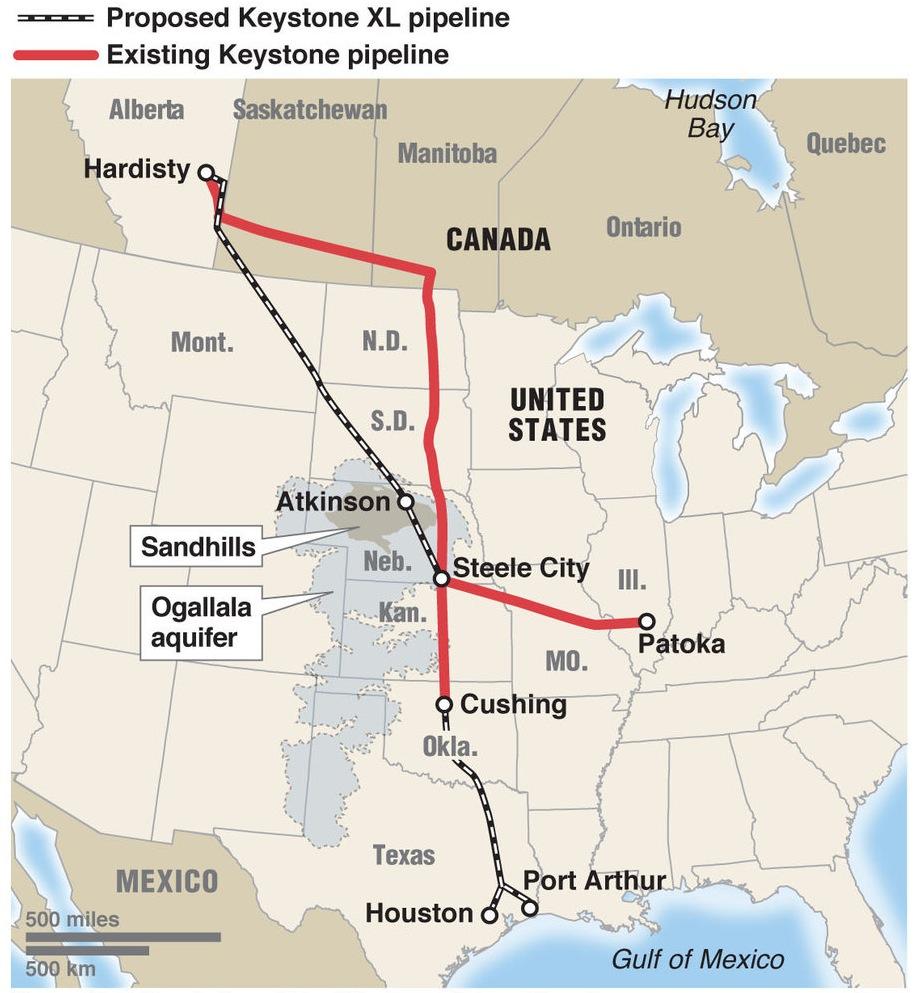Keystone XL
Nicholas DiCorato
This Tuesday, President Obama vetoed congress’ bill to extend the Keystone pipeline, which would connect the oil sands of Canada to refineries in the midwestern United States. Congress could attempt to override the veto, but this is unlikely. The Obama administration is keen to point out that it is waiting on the State Department’s final investigation into the XL extension, and has vetoed the legislation rather than the pipeline itself. This does little to calm the raging dispute over the pipeline extension. Proponents of the bill believe the Keystone extension will create jobs, decrease dependence on unstable Middle East oil providers, and lower gas prices. Critics emphasize significant environmental risks and exorbitant costs. Here is a breakdown of the extension.
How much would the extension cost? What would this mean for the US economy?
The 1,664 mile extension would cost around $5.4 billion, though estimates range as high as $10 billion. According to the State Department, the project could add upwards of $3 billion to the US economy, and create thousands of construction jobs. Once construction is completed, however, only about 50 permanent jobs would remain. Also, according to Forbes, the XL extension would have almost no discernible effect on gas prices, and, if anything, could raise them.
Explain the Keystone pipeline.
The Keystone pipeline already exists. It is a 2,000+ mile system that currently delivers crude oil from Hardisty, Alberta to the midwest US for refinery into gasoline. The new XL expansion would connect Albertan crude directly to ample Nebraska refineries over a shorter distance through a larger diameter pipeline. The most recent extension, called the Gulf Coast Pipeline (connecting midwest oil to Gulf Coast refineries), was less contentious because it did not traverse an international boundary and therefore did not require the president’s approval.
What’s all the fuss about?
There are substantial environmental concerns with this project. Opponents say it will further dependence on fossil fuels rather than more environmentally friendly energy sources, and it will promote further production from Canada’s oil sands (which yield a low-grade petroleum that needs much more refining and produces 15% more greenhouse gases per barrel extracted than conventional crude). Environmentalists also fear the potential for spills, which have happened before– in Mayflower, Arkansas in 2013, for example, an Exxon-Mobil pipeline leaked several thousand gallons of crude into a suburban neighborhood. A leak from the XL pipeline could be even more catastrophic, owing to the fact that the pipeline abuts a portion of the Ogallala aquifer, which provides drinking and irrigation water to thousands. 90% of the water pumped from the aquifer is used to irrigate crops, and it is responsible for billions of dollars worth of crop production each year; contaminating this aquifer would have untold detriments. Still, Pew Research Center’s national survey found that 66% of Americans supported the project, while only 23% opposed it.
Photo Source: The Washington Post

